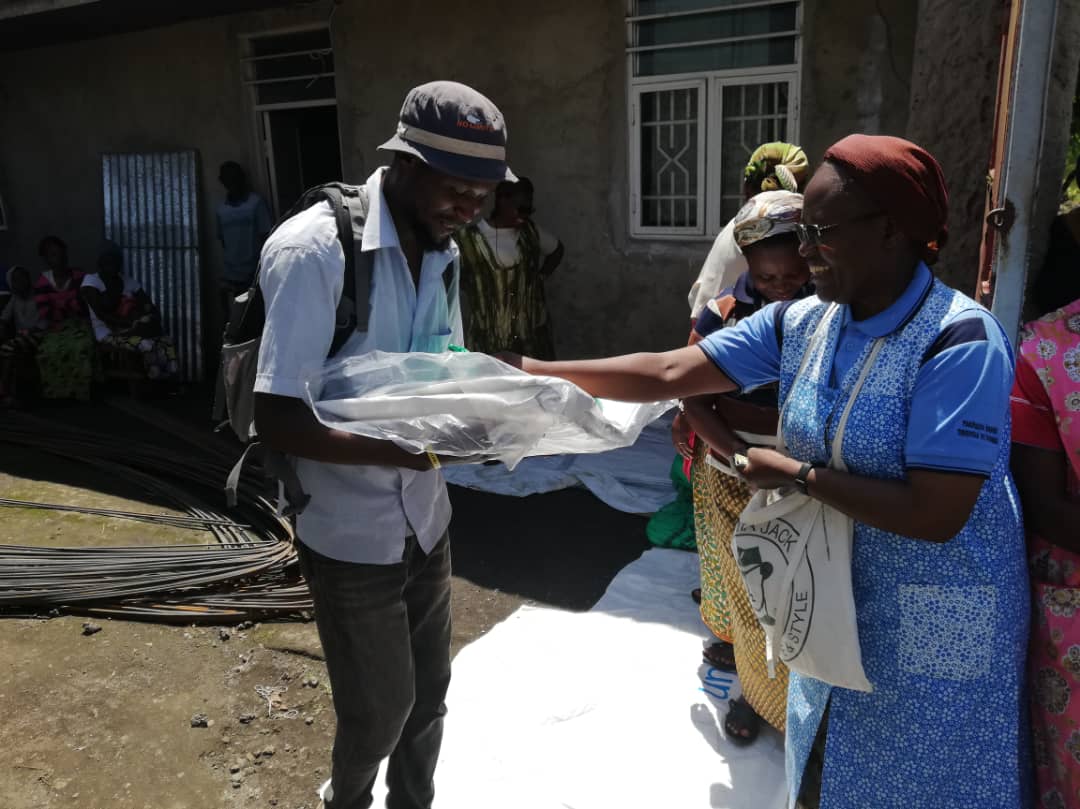
Dressing the naked – Third Corporal Work of Mercy
The Works of Mercy through the eyes of a biblical scholar
The preparation for the reflection meeting on the Works of Mercy, which will start on 17 July 2023 in Lucca and end two weeks later, continues. In this time anticipating the beginning, we will focus on each specific work, thanks to the help of the biblical scholar Carlo Miglietta.
The third Work of Corporal Mercy is “dressing the naked”

The biblical scholar points out that the one who performs this work is similar to:
- God, who when “Adam and Eve realised that they were naked” (Gen 3:7), “made the man and the woman tunics of skins and clothed them” (Gen 3:21); and to the blessed God will give “to each one of them a white robe” (Rev 6:11).
- Tobi, who “gave clothes to the naked” (Tb 1:17).
The biblical scholar also reminds us that those who clothe the naked hear the Word of God
Below some excerpts:
- “Make part of your clothes to the naked” (Tb 4:16)
- “Is not this rather the fast I want…? Does it not consist… in clothing one whom you see naked?” (Is 58:6-7.10).
- Eliphaz the Temanite sees as the cause of Jacob’s suffering that he “stripped the naked of his garments” (Ib 22:6).
- “If one covers the naked with clothes…, he is righteous and shall live: the word of the Lord” (Ez 18:7, 16).
- “He that hath two tunics, let him that hath none give one; and he that hath food, let him do likewise” (Lk 3:11).
- “If a brother or sister is unclothed and without daily food, and one of you says to them, ‘Go in peace, be warmed and filled,’ but you do not give them what is necessary for the body, what good is that?” (Jas 2:15-16).
The biblical scholar leaves us at the conclusion of this work with a provocation, a question: do we know how to be “fishers of men” (Mk 1:7), identifying those who clothe the naked and proclaiming the beatitude of mercy that reads “Blessed are the merciful” (Mt 5:7)?
Clothing as care of the body and care of the soul
If we think of a saint to associate with this work, St Martin of Tours immediately springs to mind. In the year 337, he cut his military cloak in half to share it with a beggar shivering from the cold and encountered at the gates of the city of Amiens. The other half of the cloak in fact belonged to the Roman army in which he was enlisted. The following night, dressed in the half of the donated cloak, Jesus appeared to him in a dream to thank him for his gesture. In 2021, St Martin of Tours, an important witness of evangelical charity, was proclaimed the patron saint of Italian voluntary work.
In the Bible, nakedness is a sign of human frailty, poverty, marginalisation and the consequent need for care and love. Let us remember that we are born naked and already in the womb we are enveloped only by our mother’s love.

Clothing certainly performs a natural function, protecting the body from frost and too much sun; but it also performs a social function regarding a sense of modesty and respect for human dignity and the value of the person. “Dressing the naked” is certainly a taking care of the body but also of the soul, protecting the intimacy and interiority of man and remembering that the latter also needs protection, custody and care.
The Works, a tool to restore dignity
Even in our condition of humanity, through the Works of Mercy, we are capable of doing great things. If we fill our actions with “spiritual meaning”, our actions take on greatness because of the certain condition of being Sons of God, and this enables us to produce salvific fruits, first and foremost by restoring dignity to those who accept the Works of Mercy in their daily actions. Spazio Spadoni wants to generate precisely this awareness, through the process of spreading the works throughout the world.
Bibliography
![]() Carlo Miglietta – Le Opere di Misericordia
Carlo Miglietta – Le Opere di Misericordia
 Carlo Miglietta – Works of Mercy
Carlo Miglietta – Works of Mercy
 Carlo Miglietta – Oeuvres de miséricorde
Carlo Miglietta – Oeuvres de miséricorde
Read Also
Giving drink to the thirsty – Second Corporal Work of Mercy
Feeding the hungry – First Corporal Work of Mercy
The Works of Mercy from Brazil to Italy
